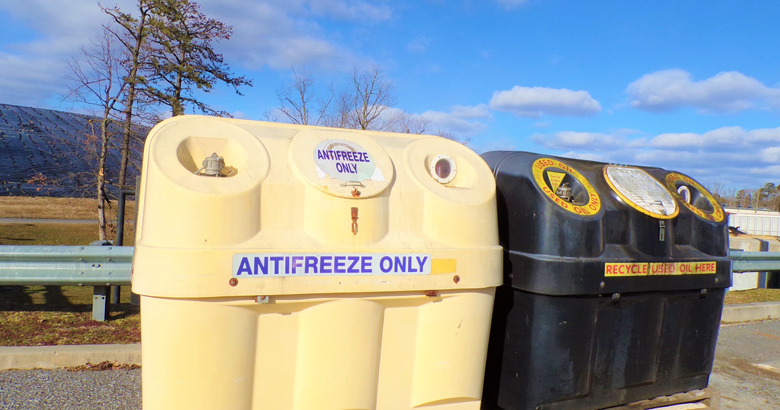Board Meeting – July 23, 2025 – 4:00pm
Call In: 1(773) 917-3399
Passcode: 332 953 368#
Board Meeting – July 23, 2025 – 4:00pm
Call In: 1(773) 917-3399
Passcode: 332 953 368#
The Authority—Recycle Right 30 seconds
A look at Cumberland County's recycle guidelines, accepted items, and more. Don't trash our future, do the right thing—recycle!
The Authority—Recycle Right 30 seconds
A look at Cumberland County's recycle guidelines, accepted items, and more. Don't trash our future, do the right thing—recycle!
The Authority strives to provide a safe and accessible way of disposing electronic waste. The State of New Jersey defines electronic waste (e-waste) as all computers, monitors, laptops, portable computers, desktop printers, fax machines, and televisions. The Authority goes above and beyond what is acceptable as defined by the state by providing collection centers for other electronics and peripherals. Authority staff work with municipal coordinators in the 14 municipalities to schedule, receive, sort, organize, wrap, and ship e-waste to a designated facility.
Residents who wait to bring their electronics to one of the Household Hazardous Waste events will be happy to know that they can drop off their e-waste throughout the year to their local public works and municipal “convenience” or “drop off” centers. The Authority recommends contacting your municipal recycling coordinator or center for specific details prior to your visit.
The following electronics are accepted: computer monitors, computer towers, laptops, desktop printers, fax machines, TVS including projection, wooden console, tube, flat screen, cell phones, copiers, printers, VCRs, DVD players, radios, computer keyboards, mouse, speakers, networking peripherals, boxes, cables, battery backup systems, stereos (not wooden consoles).
The Authority recommends contacting your municipal recycling coordinator or center for specific details prior to your visit.
—Nathan Farrell, Household Hazardous Waste and E-Waste Coordinator
Latex Paint (also known as water-based paint) is non-hazardous. Here’s how to properly dispose of it.
Oil-based paint can only be disposed of at one of the Household Hazardous Waste and Document Shredding Days sponsored by The Authority.
The Authority provides local public works and municipal convenience or drop-off centers with containers for disposal of used oil and antifreeze. There’s no need to wait for a Household Hazardous Waste event to dispose of these items properly. The Authority recommends residents contact their municipal coordinators with any questions specific to anti-littering programs or issues in their town and community.

